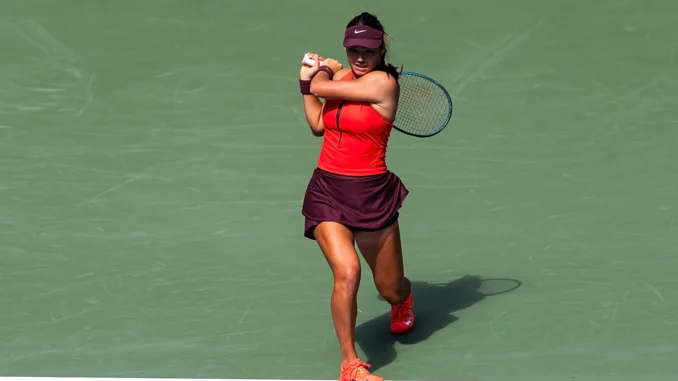
In a move that’s sparked debates across the tennis world, British sensation Emma Raducanu has chosen to sideline her team duties for the Billie Jean King Cup finals in favor of competing in the Korea Open. The 2021 US Open champion, known for her meteoric rise and subsequent battles with injuries, announced her decision just days before Great Britain’s squad was set to face tough competition in Seville, Spain. This isn’t just a scheduling quirk; it’s a calculated step in Raducanu’s quest to reclaim her individual dominance on the WTA Tour, putting personal growth ahead of national pride—at least for now.
Raducanu’s career has been a rollercoaster of highs and hurdles since that fairy-tale Grand Slam win at Flushing Meadows as a qualifier. At just 21, she’s already navigated shoulder surgeries, ankle woes, and the relentless pressure of being Britain’s golden girl in women’s tennis. Her recent form has shown flickers of brilliance: a deep run at the Indian Wells Open earlier this year and a gritty quarterfinal appearance in Guadalajara. But consistency has eluded her, with withdrawals and early exits piling up. Enter the Korea Open, a WTA 250 event in Seoul offering crucial ranking points and a chance to build momentum on hard courts ahead of the Asian swing.
“Why now?” one might ask. Raducanu laid it out plainly in a candid interview, emphasizing the toll of her packed calendar. “I’ve had to make some tough choices this year to protect my body and focus on what I can control,” she said. “The Billie Jean King Cup is an incredible honor, and I love representing Great Britain, but right now, I need to prioritize my recovery and get more matches under my belt individually.” Her words underscore a maturing athlete who’s learned the hard way that burnout isn’t just a buzzword—it’s a career killer. After pulling out of several commitments earlier in the season, including a doubles stint at the Olympics, Raducanu is laser-focused on stringing together wins without the added strain of team events.
The Billie Jean Cup, formerly the Fed Cup, has long been a cornerstone of women’s tennis camaraderie, pitting nations against each other in a best-of-five singles and doubles format. Great Britain, under captain Anne Keothavong, was banking on Raducanu’s firepower to bolster a squad featuring Harriet Dart, Sonay Kartal, and Heather Watson. Without her, the team faces an uphill battle against powerhouses like the United States, Australia, and hosts Spain in the group stage starting November 13. Keothavong, ever the diplomat, expressed disappointment but understanding: “Emma’s been open about her challenges, and we respect her decision. The girls are motivated to step up.” Still, the absence of their top-ranked player leaves a void—Raducanu’s aggressive baseline game and serve could have been game-changers on the clay courts of Seville.
For Raducanu, the Korea Open represents more than points; it’s a proving ground. The tournament, running from September 21-29, features a strong field including former world No. 1 Karolina Pliskova and rising stars like qualifier Lulu Sun. Raducanu, seeded based on her current ranking around No. 70, arrives fresh off a training block in the UK, where she’s honed her fitness with a team of physiotherapists and coaches. “I’m excited about Seoul—it’s a fresh start, and I feel like my game’s clicking,” she added, her optimism palpable. Experts speculate this could be the spark she needs: a title here might catapult her back into the top 50, setting the stage for bigger battles at the WTA Finals or next year’s Australian Open.
This choice ripples beyond the courts, highlighting the evolving tensions in professional tennis. Players like Raducanu are caught between the allure of team glory—think the electric atmosphere of national anthems and shared triumphs—and the cold calculus of individual rankings that dictate sponsorships and seedings. The Billie Jean King Cup, rebranded in 2019 to honor the trailblazing activist, has adapted with a revamped format to attract top talent, yet opt-outs persist. Raducanu’s predecessor, Johanna Konta, faced similar scrutiny for prioritizing health, and now the Briton follows suit. Critics argue it undermines team spirit, but supporters see it as empowerment: women asserting control in a sport that’s as much mental marathon as physical sprint.
As the Korea Open draws near, all eyes are on Raducanu. Will this solo venture reignite her fire, or will the ghost of team loyalty haunt her? She’s not dwelling. “Tennis is a selfish sport at times, but that’s okay—it’s about giving your best when it counts,” she reflected. With autumn leaves turning in Seoul and the baseline beckoning, Raducanu steps into the arena alone, ready to script her next chapter. For fans, it’s a reminder: even prodigies must carve their own paths, one forehand at a time.
Leave a Reply